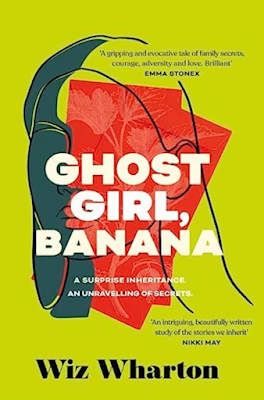About the Book:
Set between the last years of the “Chinese Windrush” in 1966 and Hong Kong’s Handover to China in 1997, a mysterious inheritance sees a young woman from London uncovering buried secrets in her late mother’s homeland in this captivating, wry debut about family, identity, and the price of belonging.
Hong Kong, 1966. Sook-Yin is exiled from Kowloon to London with orders to restore honor to her family. As she strives to fit into a world that does not understand her, she realises that survival will mean carving out a destiny of her own.Thirty years later in London, having lost her mother as a small child, biracial misfit Lily can only remember what Maya, her preternaturally perfect older sister, has told her about Sook-Yin. Unexpectedly named in the will of a powerful Chinese stranger, Lily embarks on a secret pilgrimage across the world to discover the lost side of her identity and claim the reward. But just as change is coming to Hong Kong, so Lily learns Maya’s secrecy about their past has deep roots, and that good fortune comes at a price.
Heartfelt, wry and achingly real, Ghost Girl, Banana marks the stunning debut of a writer-to-watch.
About the Author:
 |
| Wiz Wharton, Courtesy of Author |
_________________________
EC: Congratulations on your debut novel, Ghost Girl, Banana, which has just launched to much critical acclaim in the UK. In your acknowledgement, you mentioned the story’s inception as ‘the discovery of some old-fashioned floppy discs in a box’. Can you tell us about how a whole novel was borne out of this discovery?
WW: Yes, so this happened back in 2020 when I was moving house and discovered the discs in a box of my late mum’s possessions. Initially, I had no idea what they were, and it was only later that I discovered they were transcriptions of her diaries, kept since she arrived in the UK in the early sixties as an immigrant from Hong Kong. Although painful to read in parts, they were also transformative in revealing so many of her experiences which she had never really spoken about during her lifetime. That stoicism is germane to many women of that generation, I think, as much as it’s also a cultural thing, but I remember wondering how many other hidden stories there were out there, and what a tragedy it was that they weren’t more represented in the British fiction space. As much as a novel is always an ambitious creative project to embark upon, I had a whole wealth of information in front of me to draw upon, so I was very fortunate in that respect.

